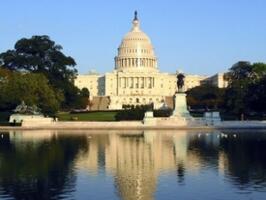High Heels and Workers' Rights By Froma Harrop
One of the strangest artifacts of American culture is the spiked heel as a symbol of female power. Many waitresses at America's casinos feel otherwise.

One of the strangest artifacts of American culture is the spiked heel as a symbol of female power. Many waitresses at America's casinos feel otherwise.

Another week, another controversy in official Washington. While each of these stories has its own cast of characters and internal dynamics, it is now possible to identify a unifying theme.

"Gentlemen do not read each other's mail." That's what Secretary of State Henry Stimson said to explain why he shut down the government's cryptanalysis operations in 1929.

At this very early point in the 2014 race for the U.S. House, small Republican gains -- as in, less than five seats -- look likelier than a similarly small gain for Democrats. That’s because the Republican targets just look a little better than the Democratic ones.

This week, Sen. Rand Paul, R-Ky., said the National Security Agency's data mining violates our Fourth Amendment right to be "secure in their persons, houses, papers" and is "tyranny that our founders rebelled against." Good for him.

If the national tax revolt has bookends, the first bracket was placed 35 years ago this month. That's when California voters passed Proposition 13, a law curbing tax increases.

The NorCal Tea Party last month filed class action litigation against the Internal Revenue Service in federal court in Ohio, based on the unconstitutional profiling and harassment of conservative, religious and other liberty-minded organizations in their applications for non-profit status. By its own admission, the IRS has been profiling and discriminating against hundreds of groups based on their political viewpoint.

Barack Obama's appointments of Susan Rice as national security adviser and Samantha Power as ambassador to the United Nations have naturally triggered speculation about changes in foreign policy.

Anti-government protests in Turkey have produced a social movement like no other. The lit match was not the death of a heroic dissident, a corrupt election, high unemployment or the other usual-suspect grievances. It was the government's plan to replace precious park space in downtown Istanbul with a shopping mall and replica of army barracks from the Ottoman era.

Many pundits assumed that this would be the year that comprehensive immigration reform became law. The conventional wisdom was that President Obama's re-election and his strong showing among Hispanic voters would force Republicans to go along.
Now, halfway through the year, the prospects for immigration reform have dimmed significantly.

Over the last seven decades, 115 veterans of World War II have served in the United States Senate. This week, the last of them, Frank Lautenberg of New Jersey, died.

Europe's struggles prove that "austerity" fails!
So say the Big Spenders.
With a condescending sigh, they explain that Europe made deep cuts in government spending, and the result was today's high unemployment. "With erstwhile middle-class workers reduced to picking through garbage in search of food, austerity has already gone too far," writes Paul Krugman in The New York Times.

The sky isn't falling. The train is not wrecking. The end is not nigh. And to drag this out a bit, the tidings are not all bad.

Detroit, once one of the nation's most vibrant cities, faces imminent bankruptcy. That's the headline from the report last month of emergency fiscal manager Kevyn Orr, issued 45 days after he was appointed this spring by Michigan Gov. Rick Snyder to take over the city's government.

Let's state this very simply, so everybody will understand. The notion that Barack Obama is "Nixonian" -- or that his administration's recent troubles bear any resemblance to "Watergate" -- is the biggest media lie since the phony "Whitewater scandal" crested during the Clinton presidency.

Most stories about the president's health care law these days are about the challenges of implementation and the complexity of setting up exchanges. But that's not where the action is. What's more important is that insurance companies, benefits consultants and others are actually reading the 2,000-page law to see what it says.

A thoughtful reformer targets the traditional rules of an aging institution that has retarded progress in the past. Time to modernize those rules, the reformer says, and prevent obstruction in the future.

Plan to drive more this summer? Annoyed by the price of gas? Complaining that oil companies rip you off?

There is one problem with the entirely justified if self-interested media squawking about the Justice Department snooping into the phone records of multiple Associated Press reporters and Fox News's James Rosen.

Guy writes a film script full of four-letter words. But when the actors repeat them, he gets all huffy about the dirty language. An absurd reaction, wouldn't you say? But it's not so different from the scene in which our lawmakers scold corporate chieftains for exploiting tax loopholes their legislatures helped create.